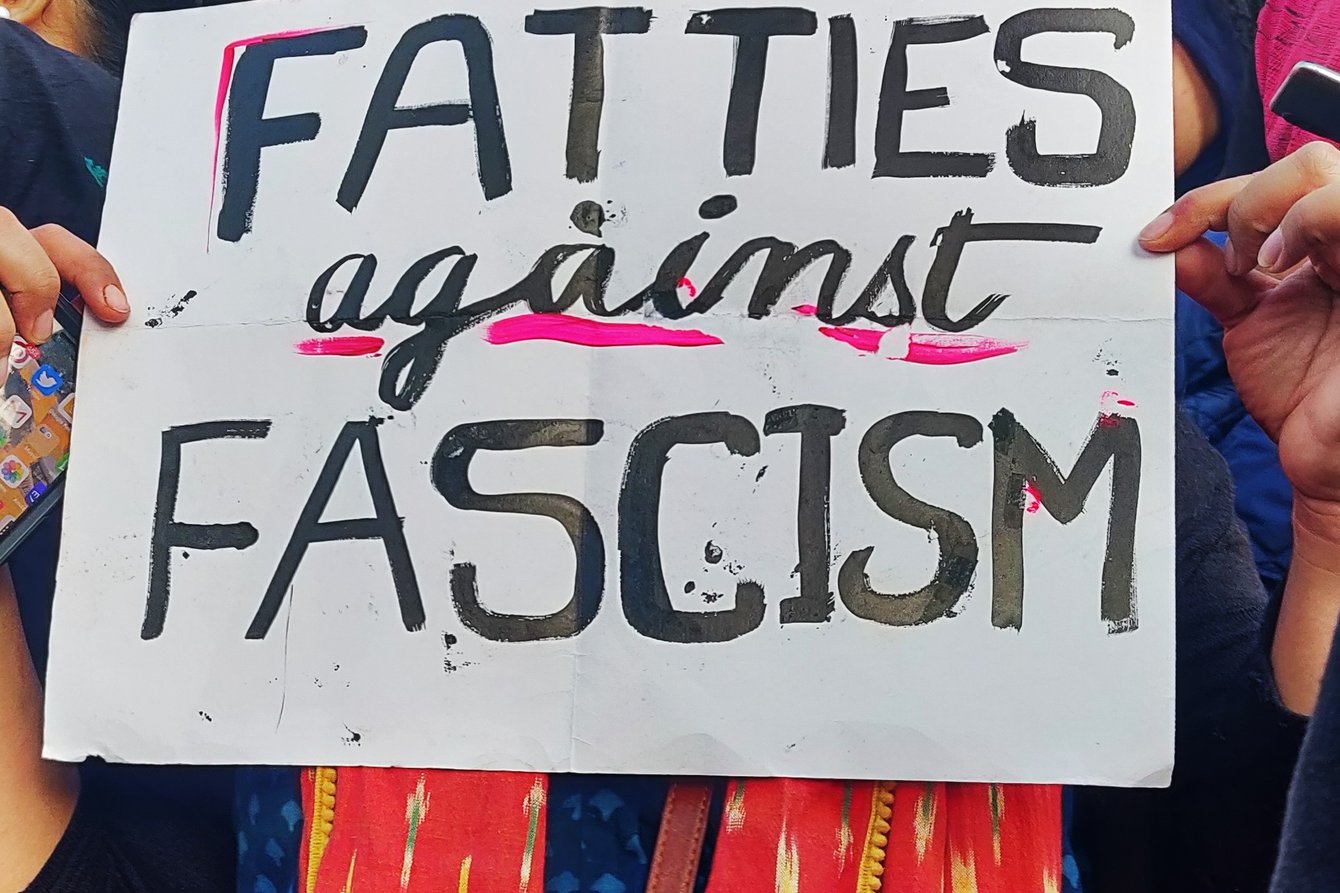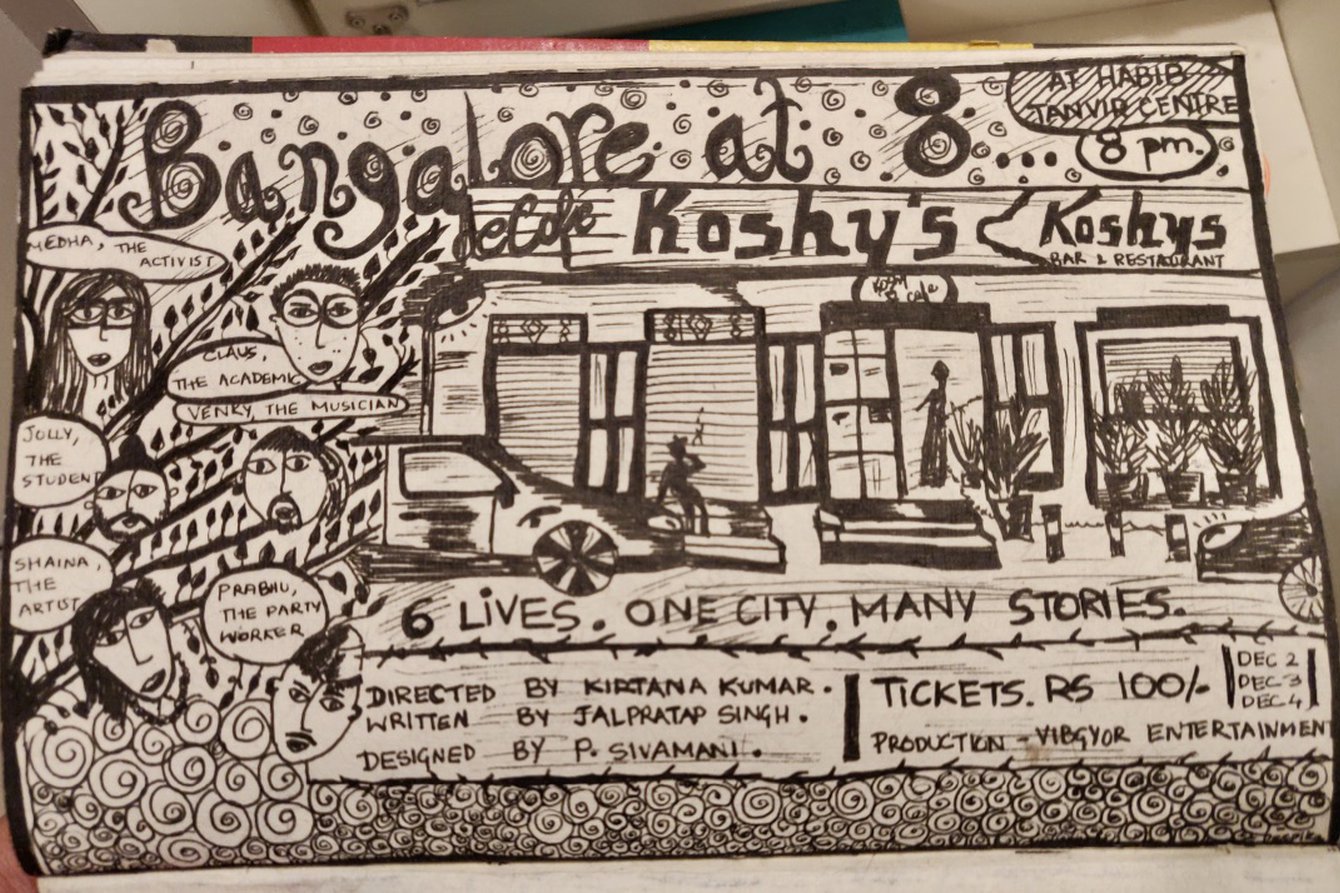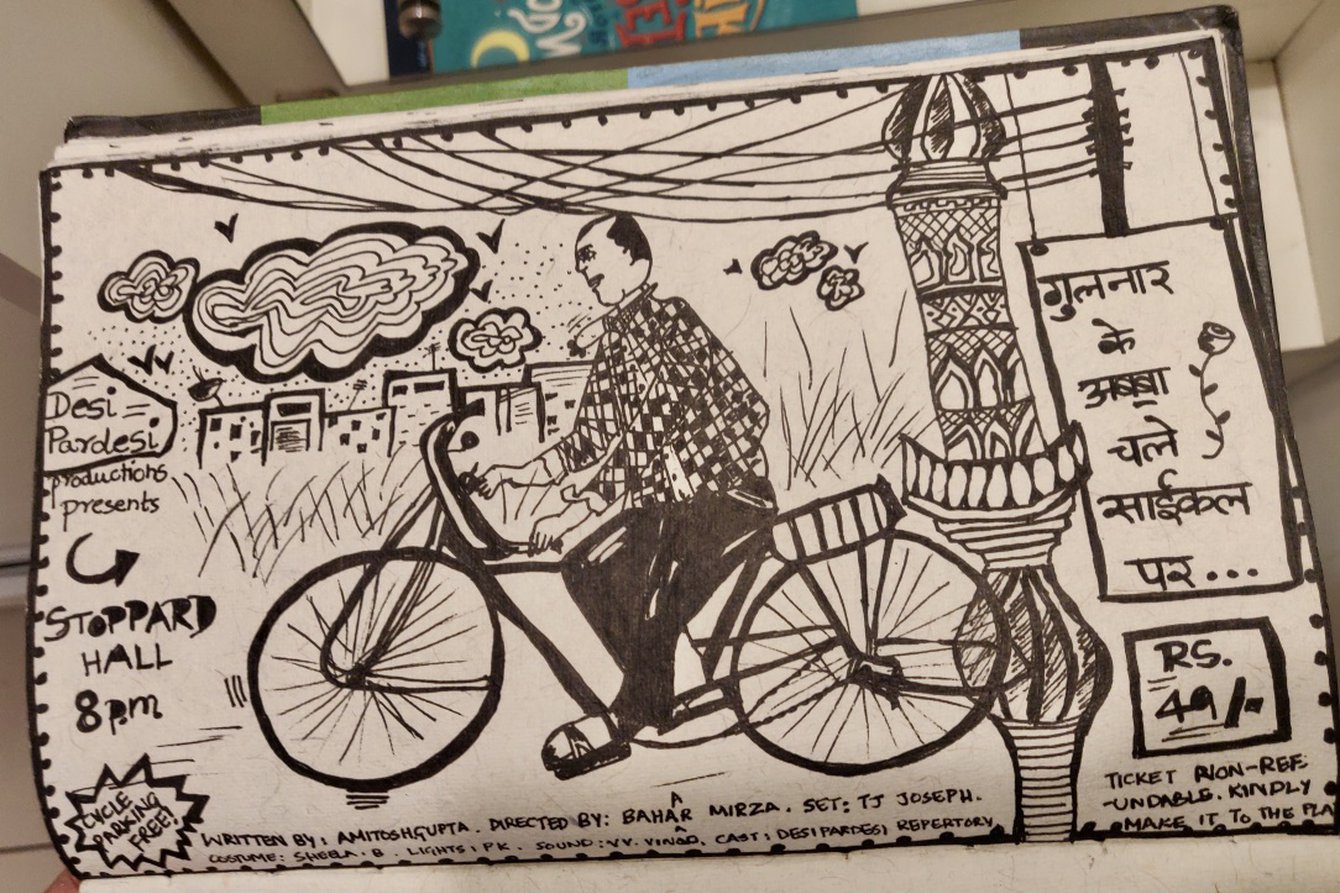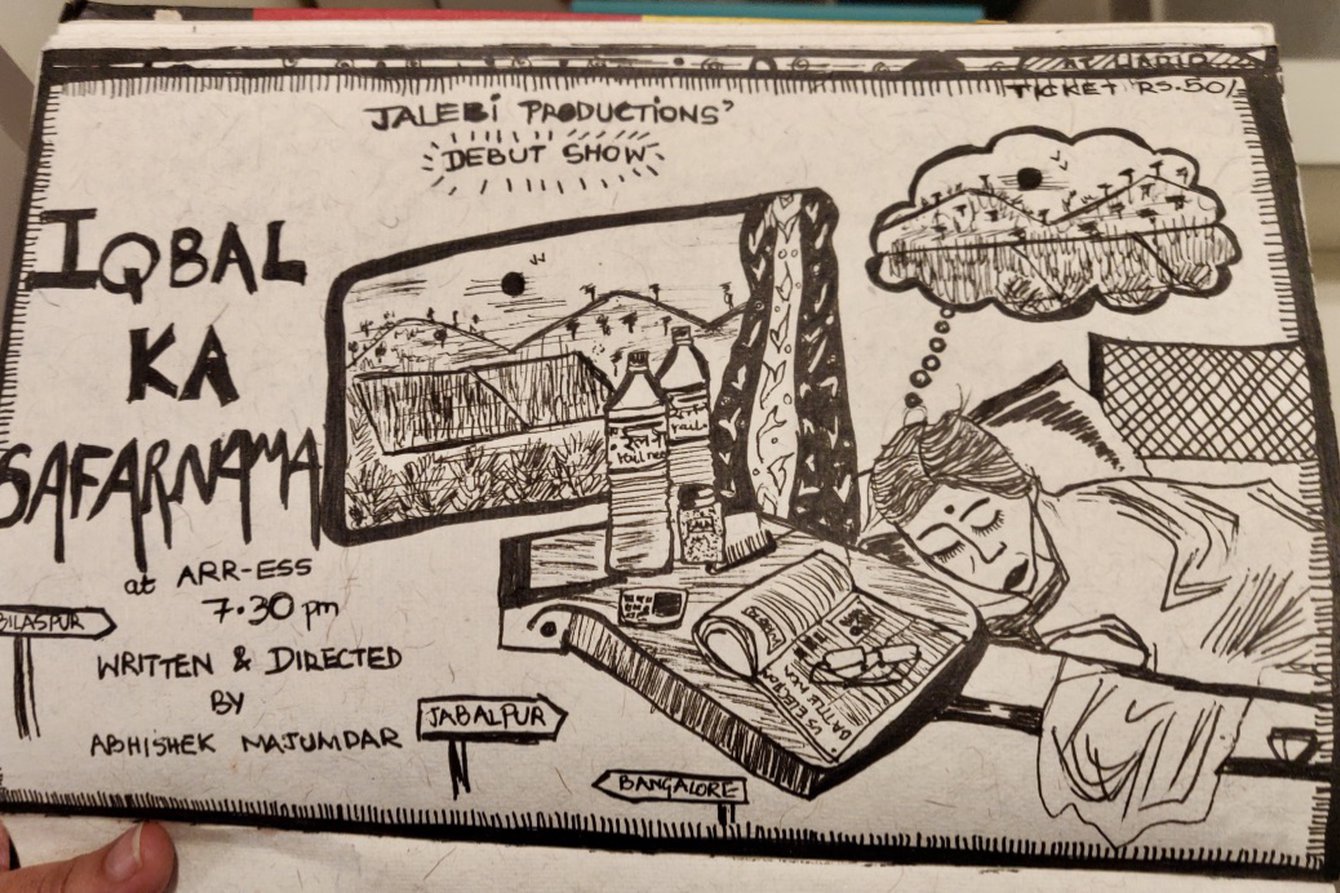Deepika Arwind: Notes on Remembering
#remoteresidency
by
Deepika Arwind
Themes
We can read people who have thought and written about the world and civil society. We can try to look past the warlike nomenclature of these times and find a language that cares about the collective. We can define our ‘we’ and find ways to expand that definition, including non-humans as well.
Mid-February, we were in New Delhi with a play for a national theatre festival, watching the news from Wuhan. But we quickly flipped the channel to find out what was happening at Shaheen Bagh. It resonated strongly: an emblem of the will of ordinary women who feared that disenfranchisement — and not just for themselves — would be legitimated by the Indian citizenship act. Echoes of protest had been ringing out from Lebanon, Chile, Hong Kong, and the USA, among many other countries and continued to be heard. At the time, COVID-19 was still a problem in China; it had not yet torn through the world. Except, it most certainly had, we just didn’t know it. There was a shooting in Hanau, Germany. A senseless echo of xenophobia. We had seen that before. A few weeks later, there was bloodshed on Delhi’s streets and communal riots – another echo of that darkness. We had heard it before; videos of mobs attacking Muslim neighbourhoods. Relief work continued, citizens mobilised funds and supplies for the victims of the February 2020 riot. All of it came to a startling, alarming halt.
A lockdown was announced, but protest signage and art had already been painted over, as if to hastily unrecognize what had been building in the country for the past three months. Then a pandemic. Another echo from history. We had been there before too. Videos of migrant labourers embarking on 800-kilometre-long journeys, being sprayed with disinfectant. Reports of deaths from starvation began to circulate. The virus will not kill us, they said, hunger will. COVID-19 relief funds are now available: for sanitation workers, waste-pickers, folk artists, construction crews, and sex workers.
This is a chance to look closely at ourselves and our societies. Instead, some of the more amplified messages remain the same as always: work hard, work from home, watch Netflix, value conventional family structures, and #whenallthisisover, you can take your Thailand holiday (a scaled-down version), continue purchasing fast fashion and every now and then buy an organic product to salvage your soul.
Inside the house, the great Indian middle classes have been called upon to grudgingly let go of their domestic help. It is time to wash one’s own bathroom, wash one’s own dishes, and hopefully confront oneself. Suddenly men are privy to the answer to that burning question: what do women do at home all day anyway? Some try to heroically make food and document their efforts; others turn aggressive and domestic abuse cases rise. For some, nothing has changed. Their wives and mothers double down on household chores, meals, keeping children active and healthy, while they go on remote meeting overdrive, and watch the migrant labourers on TV with disdain.
On some social media fronts, glory and sunshine prevail as people upload videos of kale and quinoa salads and how much they have achieved over the day. In other corners, people talk about how to take care of mental health, recognising the effect of this crisis on the body and mind. Blind optimism and garden-variety motivation are annoying, but so is the atmosphere of dread; and we are mostly walking the foggy pathway between the two.
Why am I writing down what you probably already know? Because that seems to me to be a meaningful exercise in this time: to remember. To bear witness. It is my most keen, curious and listening self that I can try to bring to every waking day.
Many friends asked me if I was thinking of doing my cancelled performances online. A journalist called me to check if the future of theatre could be imagined on Zoom. Was I planning to launch an innovative online theatre project? Was a I writing a play about COVID-19? What was I going to do if we could not ask people to come to the theatre for the next six months?
It had only been 10 days of lockdown. My most immediate and active response had been taking part in fundraising for food and supplies. And to keeping my body moving. As to the rest, I was as adrift as anyone else. As regarding slick predictions for the future of the performing arts in this changing world – I had no answers. I still don’t.
But what I can do is remember. I can listen deeply. We all can.We can read people who have thought and written about the world and civil society. We can try to look past the warlike nomenclature of these times and find a language that cares about the collective. We can define our ‘we’ and find ways to expand that definition, including non-humans as well.
We can listen to the people who have been warning the world about the connections between climate change and fascism, between big surveillance and capitalism. (This is not a definitive list of articles, please make your own.) We can listen to community leaders and ancient wisdoms.
And most importantly, we can look for the line between ‘we have been failed’, and ‘we have failed’. The thickness and clarity of that shapeshifting line will be different for each of us. We can try to pin it down, if only for a fleeting moment, really try.
We may not have designed many of the problems that we sit inside of right now, but we did participate in them. We can recognise when and how. Did we choose to pour our efforts into building an Instagram following, rather than actual collective action? Did we choose to meekly forward articles to our bigoted families, rather than engage in conversation?
We can choose and vote better. We can participate in daily democracy. We can build global solidarity. We can write, think, donate. We can get behind the voices that speak for those who’ve been wilfully silenced.
We can make compassion essential to our blueprint for living.
We can change our minds. We can change our minds. We can change our minds.
And we can remember. We can hope that this is a warning bell we will heed, so that the final acts of calamity do not befall us as swiftly. And it seems that in the grand scheme of things, ‘final’ will be a long drawn-out of hundred(s) years of terror and deficit and heat.
As artists, we must know that this, too – isolation and distance –is part of our practice. We may not be inside our theatres and studios for a long time. We will have to rummage through the disappointments of cancellations in our inbox and face our dwindling bank accounts and accept our loss of momentum. But a large number of us will be able to cross this threshold. And when we do, we have to be able to recount, rebuild and reimagine. And we will have to continue to remember.
During the protests in India, a poem by Aamir Aziz (also famously recited by Roger Waters) affirmed the need for witnessing history as it unfolded. Sab yaad rakha jayega he said. Everything will be remembered. He was referring to the attacks on the students of Jamia Milia Islamia, but it soon became a call for a profound kind of documentation. Even if every other source of information seemed available to co-optation by power, we would still remember everything that happened, as it happened.
Maria Popova, known for her (advertisement-free) curiosity project ) Brainpickings that led to her lifelong search for illumination, writes in the introduction of her book Figuring (an apt title for her transformative quest).
We spend our lives trying to discern where we end and where the rest of the world begins. We snatch our freeze frame of life from the simultaneity of existence by holding on to illusions of permanence, congruence, and linearity; of static selves and lives that unfold in sensical narratives. All the while we mistake chance for choice, our labels and models of things for the things themselves, our records for our history. History is not what happened, but what survives the shipwrecks of judgement and chance.
These ‘shipwrecks of judgements and chance’ are now present in dangerous and manufactured ways. And our memory is the only compass that can help us navigate to the shores of meaning.
AUTHOR
Deepika Arwind is a theatre-maker, playwright and performer based in Bangalore, India. She works as the Artistic Director of The Lost Post Initiative (TLPI), a theatre and performing arts collective that works with diverse artists, largely around issues of gender and women on stage.
This article was first published within the framework of the Goethe-Institut initiative ›Day-AfterThoughts: Reflections on a post-corona-time‹ and is reproduced here courtesy of the original publishers.




